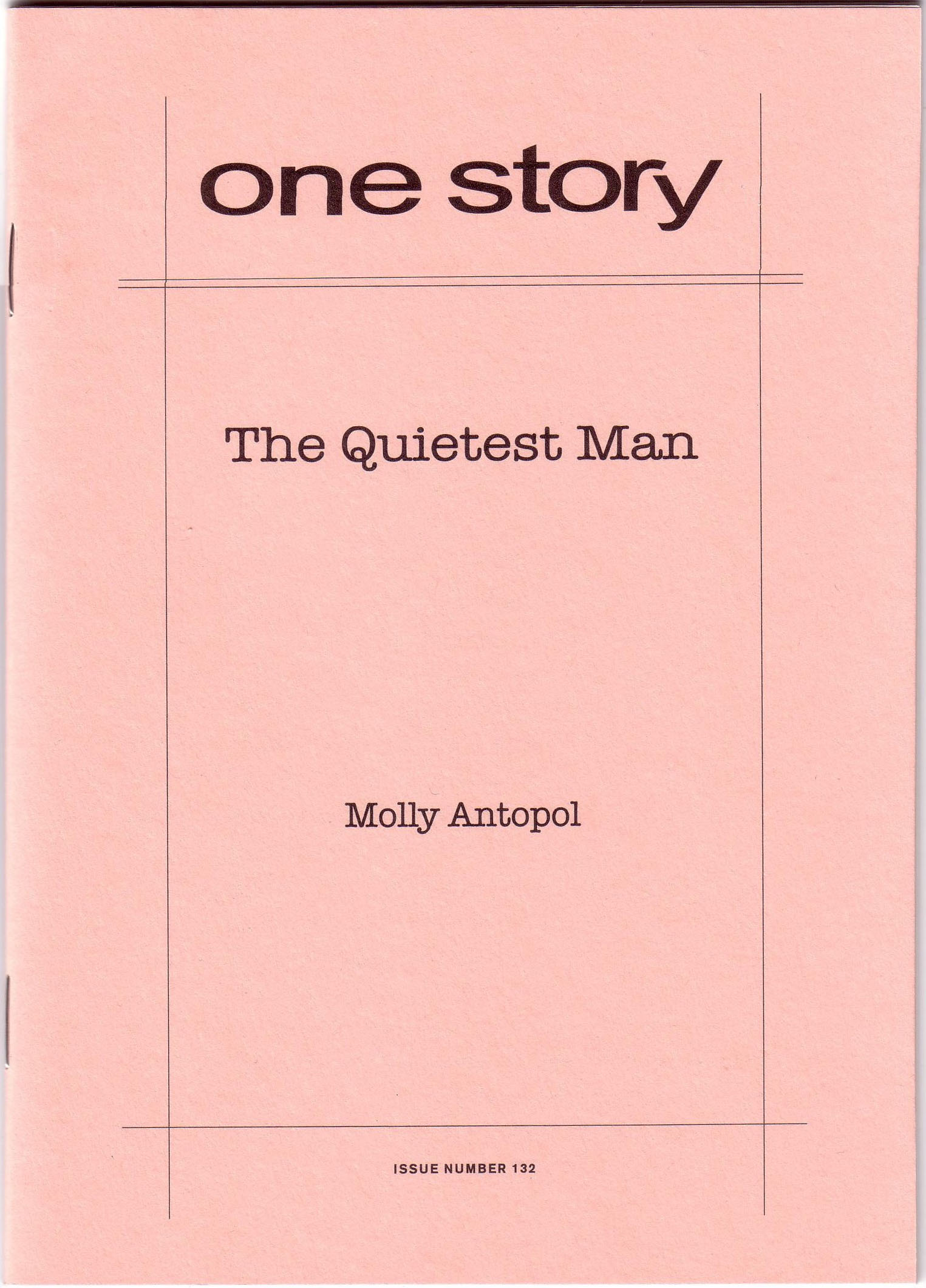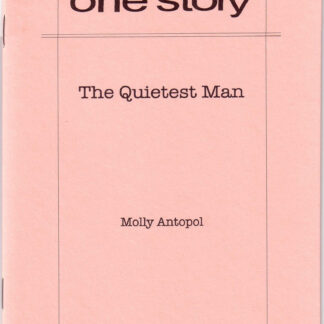
The Quietest Man
$2.50
44 in stock
Excerpt
The news was waiting when I came home from class: my daughter had sold a play. Not the kind she’d put on as a girl, with a cardboard stage and paper-bag puppets, but a real one, Off-Broadway, with a set designer and professional actors—one of whom would portray me, because this was, Daniela said in her breathless phone message, a play about our family.
I set down my briefcase, stuffed with my students’ bluebooks, and hit rewind. Then I called Katka.
“She’s twenty-three!” I said.
“So?”
“So when we were her age we were living under Husák, and we’re not writing autobiographical plays.”
“Your fatherly pride astounds me.”
I wondered how the wife I had known when Daniela was first born—the quiet, sunken woman who read the Czech newspapers in the library every morning and then wrote long letters to her mother in Prague, letters Katka had known would be swallowed by security—could have become this confident voice on the line.
“I’m just suggesting,” I said, “that Daniela may not know what she’s getting into.”
Molly Antopol
Molly Antopol is a Jones Lecturer of Creative Writing at Stanford University, where she was a recent Wallace Stegner Fellow in fiction. She has an M.F.A. from Columbia University, and her writing has appeared or is forthcoming in such publications as American Short Fiction, The Mississippi Review Prize Stories of the Year, Nimrod’s Prize Stories of the Year, Croatia’s Zarez and on New York Public Radio and NPR’s This American Life. She lives in San Francisco, where she’s finishing up a collection of stories and a novel.
Q&A by Tanya Rey
- TR: Where did the idea for this story come from?
- MA: Many of my favorite books—by Sergei Dovlatov, Victor Erofeyev and Bohumil Hrabal especially—were written in communist-era Russia and Prague. It’s always fascinated me to think about what it might have been like to risk everything to put your writing out in the world, and I started wondering about the complicated emotional impact the fall of communism might have had on a writer during that time. I thought about what it might have felt like to dedicate oneself to a cause that, in the course of world events, comes to an end—and wondered whether some writers might have had a niggling feeling of nostalgia for that bleak time, simply because they held a significant place in it. These questions were what got me going on this story. My narrator, Tomás, built his identity around writing for an underground newspaper in Prague. After the Velvet Revolution, as democracy spreads throughout the country and as new newspapers open up, Tomás has to reconcile with the fact that, only in his mid-thirties, the work that defined his life up until that moment is finished. His entire sense of himself was shaped by his dissident work, and I’m curious about how having lived under surveillance in Prague then influences his day-to-day life once he emigrates to the U.S., where he quickly realizes that not only is he no longer being watched—he’s no longer being noticed.
- TR: What was the most challenging aspect of writing this story?
- MA: Making the present action in small-town Maine as compelling as the inherently more dramatic backstory in communist-era Prague.
- TR: The themes of censorship and investigation—both things that Tomás dealt with in Soviet Prague—are echoed throughout the piece. What led you to want to explore these ideas in your work?
- MA: Many of the stories in my collection were inspired by my family history, most notably their involvement in the communist party. The question I always seem to be circling back to in my writing is how being under investigation—whether in Europe or McCarthy-era America—affects people on a smaller, more domestic level. Grace Paley has that great quote, not to write what you know, but to write what you don’t know about what you know. That’s what it feels like for me. I love the feeling of trying to understand what it would have been like to live in another place or during a different time, or even to live here in the present day, but as a man, or a person much older than I am—I often find that I’m able to access certain emotional truths about my own life by exploring things from different angles. I haven’t written any stories about young women living in San Francisco, but I do feel that my stories are autobiographical in the sense that they capture what I questioned and obsessed over during the time I was writing them.
- TR: In the end, Tomás ends up lying to Daniela. In your mind, does this redeem him or make him even guiltier of neglect?
- MA: It definitely doesn’t redeem him. He’s such a difficult and paranoid man and certainly is as neglectful of his family in the end of the story as in the beginning. And yet I also find him incredibly sympathetic, even when he’s lying to his daughter, because he so desperately wants a chance to rewrite his history. So I suppose the answer is both. Or neither.
- TR: Where do you see Tomás and Daniela going from here? Does Katka eventually tell Daniela the truth?
- MA: I think the lie will last about a day—tops—before Katka blows the whole thing out of the water. Basically, he’s screwed. Still, I liked ending the story on a hopeful note. It was the closest thing to a happy ending I’ve ever written, though I’m not sure it counts since I could see the bus veering around the corner to run Tomás down the whole time I was writing it.
- TR: How long did it take you to complete this story?
- MA: About two months in total, but over the course of a few years. Then I worked on pretty substantial edits with Tanya Rey and Hannah Tinti.
- TR: What are you working on now?
- MA: I’m finishing up a story collection and a novel.
- TR: What is the best bit of advice about writing you have ever received?
- MA: Years ago I read an interview with Paula Fox, and she said something that really stayed with me: that in writing, truth is just as important as story. She talked about the importance of genuinely meaning—and believing in—every word she wrote. Though she said it much better than that. Reading that interview was the first time it really clicked for me that there’s no point in trying to wow anyone with cleverness and fancy sentences when I can just try to write honestly about what matters to me. And I also love that Leonard Michaels quote, that the ability to tell a story, like the ability to carry a tune, is nearly universal—and as mysteriously natural as language.
